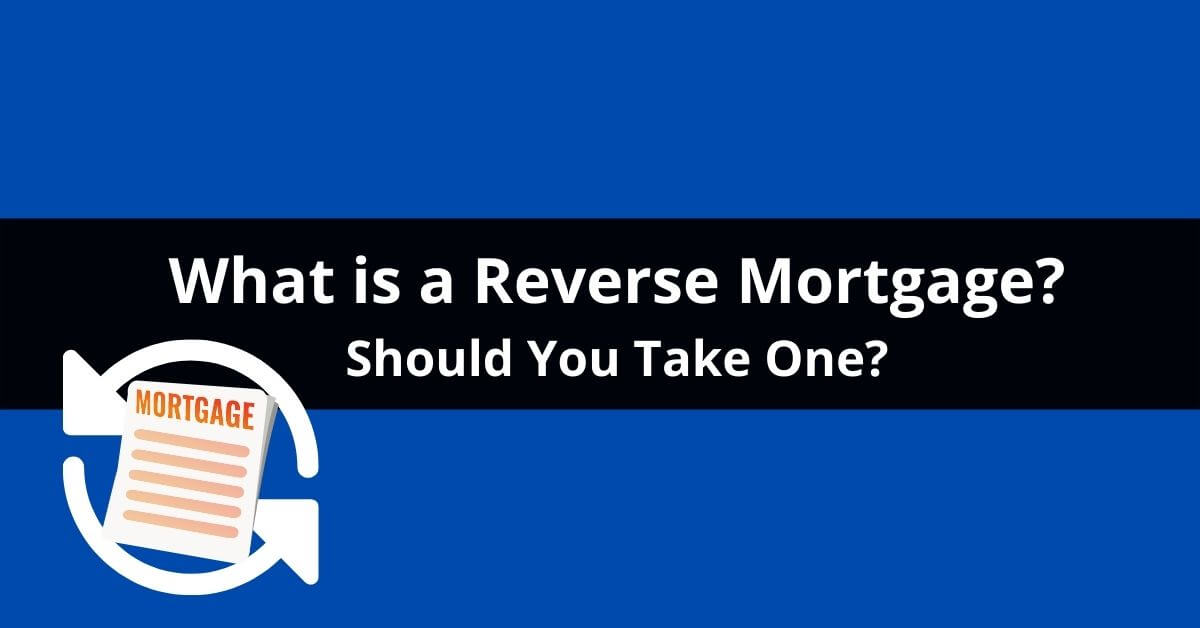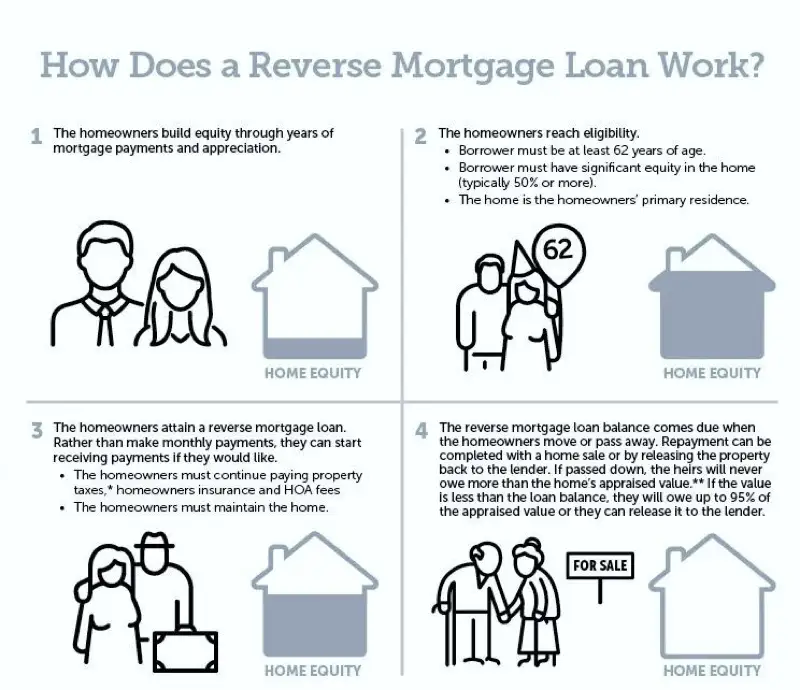Empower Your Retirement: The Smart Means to Acquisition a Reverse Home Loan
As retirement strategies, lots of individuals seek reliable strategies to improve their financial freedom and wellness. Amongst these strategies, a reverse home mortgage emerges as a viable alternative for property owners aged 62 and older, permitting them to tap right into their home equity without the necessity of month-to-month payments. While this economic tool uses several advantages, including increased money circulation and the potential to cover crucial costs, it is crucial to comprehend the intricacies of the application process and key factors to consider involved. The next actions may reveal how you can make an educated decision that can significantly impact your retired life years.
Comprehending Reverse Home Mortgages
Recognizing reverse mortgages can be important for home owners seeking monetary versatility in retired life. A reverse home mortgage is an economic product that enables qualified home owners, generally aged 62 and older, to transform a portion of their home equity into money. Unlike conventional mortgages, where customers make month-to-month payments to a lending institution, reverse home loans make it possible for homeowners to receive repayments or a swelling amount while maintaining possession of their property.
The amount offered with a reverse home mortgage relies on several variables, consisting of the property owner's age, the home's worth, and present rates of interest. Significantly, the finance does not have actually to be settled up until the property owner sells the home, leaves, or passes away.
It is vital for potential borrowers to understand the effects of this monetary product, consisting of the effect on estate inheritance, tax factors to consider, and recurring obligations associated to residential property maintenance, tax obligations, and insurance policy. In addition, counseling sessions with licensed experts are often needed to make certain that borrowers completely comprehend the terms of the funding. In general, a detailed understanding of reverse home loans can empower home owners to make enlightened choices about their economic future in retirement.
Benefits of a Reverse Mortgage
A reverse home loan offers several engaging advantages for qualified homeowners, especially those in retirement. This economic tool allows seniors to transform a section of their home equity into cash money, supplying important funds without the demand for regular monthly mortgage settlements. The cash obtained can be utilized for different purposes, such as covering medical costs, making home renovations, or supplementing retirement income, therefore enhancing general economic adaptability.
One significant benefit of a reverse home mortgage is that it does not call for payment up until the house owner vacates, sells the home, or passes away - purchase reverse mortgage. This feature enables senior citizens to preserve their way of living and fulfill unexpected prices without the concern of month-to-month payments. In addition, the funds received are commonly tax-free, permitting home owners to use their cash money without anxiety of tax obligation effects
In addition, a reverse home mortgage can supply satisfaction, recognizing that it can offer as a monetary security internet during challenging times. Homeowners also retain ownership of their homes, guaranteeing they can continue living in a familiar setting. Inevitably, a reverse home loan can be a calculated funds, empowering retirees to manage their finances efficiently while appreciating their golden years.
The Application Refine
Navigating the application process for a reverse mortgage is a vital action for home owners considering this economic option. The very first stage includes examining eligibility, which typically calls for the home owner to be at the very least 62 years old, very own the home outright or have a low home mortgage balance, and occupy the home as their key house.
When eligibility is verified, property owners should undergo a counseling session with a HUD-approved counselor. This session makes certain that they fully comprehend the effects of a reverse home mortgage, consisting of the obligations entailed. purchase reverse mortgage. After completing therapy, applicants can proceed to collect needed documents, consisting of evidence of revenue, properties, and the home's value
The next step entails submitting an application to a lender, that will certainly analyze the monetary and residential or commercial property certifications. An assessment of the home will certainly also be performed to identify its market price. If authorized, the lender will certainly offer funding terms, which need to be reviewed thoroughly.
Upon approval, the closing process complies with, where last documents are signed, and funds are paid out. Understanding each stage of this application procedure can substantially enhance the home owner's self-confidence and decision-making regarding reverse home mortgages.

Secret Considerations Prior To Acquiring
Acquiring a reverse mortgage is a significant economic decision that requires mindful factor to consider of numerous crucial elements. Assessing your financial needs and objectives is just as vital; determine whether a reverse home loan lines up with your long-term plans.

A reverse mortgage can influence your eligibility for certain government benefits, such as Medicaid. By completely reviewing these considerations, you can make a more enlightened choice concerning whether a reverse home mortgage is the right economic technique for your retired life.
Making the Many of Your Funds
Once you have secured a reverse mortgage, successfully handling the site funds comes to be a concern. The flexibility of a reverse home mortgage enables house owners to utilize the funds in numerous ways, however calculated planning is vital to maximize their advantages.
One vital method is to produce a budget that outlines your monthly costs and monetary goals. By determining needed costs such as health care, home taxes, and home upkeep, you can allot funds appropriately to ensure long-lasting sustainability. In addition, take into consideration utilizing a part of the funds for financial investments that can create revenue or appreciate over time, such as dividend-paying stocks or mutual funds.
One more essential facet is to maintain a reserve. Alloting a reserve from your reverse home loan can assist cover unexpected costs, supplying comfort and financial stability. Seek advice from with an economic advisor to explore feasible tax implications and just how to incorporate reverse home loan funds into your overall retired life technique.
Ultimately, sensible administration of reverse mortgage funds can improve your financial safety, enabling you to appreciate your retired life years without the stress of economic unpredictability. Mindful preparation and informed decision-making will certainly make sure that your funds function successfully for you.
Final Thought
To conclude, a reverse mortgage offers a feasible monetary method for senior citizens looking for to improve their retired life experience. By transforming home equity into obtainable funds, individuals can resolve important costs and protected added funds without sustaining monthly settlements. Careful consideration of the connected implications and terms is necessary to optimize benefits. Eventually, leveraging this economic device can assist in greater self-reliance and visit boost general lifestyle during retired life years.
Understanding reverse home loans can be crucial for house owners seeking economic adaptability in retired life. A reverse home mortgage is an economic item that enables qualified property owners, normally aged 62 and older, to convert a section of their home equity right into cash money. Unlike traditional mortgages, where customers make monthly payments to a lending institution, reverse home loans enable house owners to get settlements or a swelling sum while keeping ownership of their building.
On the whole, a comprehensive understanding of reverse mortgages can equip house owners to make educated decisions concerning their financial future in retired life.
Seek advice from with a monetary expert to check out feasible tax obligation implications and how to incorporate reverse mortgage funds right into your general retirement method.